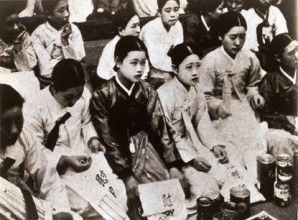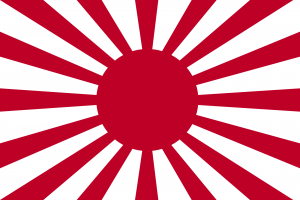Planned San Francisco monument pits city vs. revisionist Japan
by Chris Reed | September 26, 2015 5:11 am
 [1]San Francisco supervisors’ 11-0 vote[2] this week to put up a monument to the approximately 200,000 “comfort women” from Korea, China, the Philippines, Vietnam, Indonesia, Burma and elsewhere in Asia who were used as sex slaves by members of the Japanese military during World War II appears certain to cause embarrassment in Japan and result in broader international fallout.
[1]San Francisco supervisors’ 11-0 vote[2] this week to put up a monument to the approximately 200,000 “comfort women” from Korea, China, the Philippines, Vietnam, Indonesia, Burma and elsewhere in Asia who were used as sex slaves by members of the Japanese military during World War II appears certain to cause embarrassment in Japan and result in broader international fallout.
Because of an about-face by Japan’s government, 70 years after World War II, bitterness in Asia over Japan’s formal practice of sex enslavement is intense and growing. It’s well-documented that the first military brothel with conscripted women was opened in 1942 in Indonesia by a Japanese Navy lieutenant, Yasuhiro Nakasone, who went on to become prime minister of Japan from 1982-1987.
But even though the Japanese government essentially apologized [3]for the wartime sex slavery in 1993, the current Japanese government has a new position. This is from a New York Times report [4]in November 2014. Once conceded …
… the Japanese military’s involvement in comfort stations is [now] bitterly contested. The government of Prime Minister Shinzo Abe is engaged in an all-out effort to portray the historical record as a tissue of lies designed to discredit the nation. Mr. Abe’s administration denies that imperial Japan ran a system of human trafficking and coerced prostitution, implying that comfort women were simply camp-following prostitutes.
The latest move came at the end of October when, with no intended irony, the ruling Liberal Democratic Party appointed Mr. Nakasone’s own son, former Foreign Minister Hirofumi Nakasone, to chair a commission established to “consider concrete measures to restore Japan’s honor with regard to the comfort women issue.”
Nationalism drives historical rewrite
 [5]The historical revisionism may be a matter of embarrassment to Japanese-based multinational conglomerates which have to do business around the world. But it is playing well in Japan, and there are no signs of a domestic blowback to Abe’s decision. Here’s more from the New York Times:
[5]The historical revisionism may be a matter of embarrassment to Japanese-based multinational conglomerates which have to do business around the world. But it is playing well in Japan, and there are no signs of a domestic blowback to Abe’s decision. Here’s more from the New York Times:
The official narrative in Japan is fast becoming detached from reality, as it seeks to cast the Japanese people — rather than the comfort women of the Asia-Pacific theater — as the victims of this story. The Abe administration sees this historical revision as integral to restoring Japan’s imperial wartime honor and modern-day national pride. But the broader effect of the campaign has been to cause Japan to back away from international efforts against human rights abuses and to weaken its desire to be seen as a responsible partner in prosecuting possible war crimes.
The Japanese government’s changed position hasn’t been much in the news in the U.S., but it has been controversial in Asia for years and has also drawn unflattering coverage from the BBC[6].
The San Francisco supervisors’ resolution could easily lead to this becoming a big issue in the U.S., especially if such prominent San Francisco politicians as Sen. Dianne Feinstein and former House Speaker Nancy Pelosi weigh in.
Similar, though far less weighty, flap in Virgina
The parallels with a 2013-14 controversy in the state of Virgina are plain, although that case was much less inflammatory. Here’s a Reuters summary[7]:
Legislation requiring that the Korean name for the Sea of Japan be included in new school textbooks has become law in the U.S. state of Virginia, a victory for Korean-American campaigners backed by the South Korean government.
Virginia Governor Terry McAuliffe signed the law earlier in the week, a spokesman confirmed on Thursday. The law requires textbooks to add the name “East Sea,” as the body of water that separates Japan and Korea is known in Korea.
Passage of the legislation represents a significant victory for vocal campaigners among Virginia’s 82,000 Korean-Americans, who greatly outnumber the state’s 19,000 ethnic Japanese.
The issue attracted intense lobbying not only from Korean-Americans but the governments of South Korea and Japan more than 7,000 miles away, which have been squabbling for years over the name for the sea.
It is a source of intense bitterness for Koreans that the “Sea of Japan” was standardized worldwide while Korea was under Japanese colonial rule.
- [Image]: http://calwatchdog.com/wp-content/uploads/2015/09/comfort.women_.jpg
- 11-0 vote: http://sanfrancisco.cbslocal.com/2015/09/23/sf-supes-approve-comfort-women-memorial-wwii-sex-slave/
- apologized : http://www.mofa.go.jp/policy/women/fund/state9308.html
- report : http://www.nytimes.com/2014/11/15/opinion/comfort-women-and-japans-war-on-truth.html?_r=0
- [Image]: http://calwatchdog.com/wp-content/uploads/2015/09/Imperial.Japanese.Army_.flag_.png
- BBC: http://www.bbc.com/news/world-asia-33754932
- summary: http://www.reuters.com/article/2014/04/04/us-korea-japan-virginia-idUSBREA3301620140404
Source URL: https://calwatchdog.com/2015/09/26/planned-san-francisco-monument-pits-city-vs-revisionist-japan/